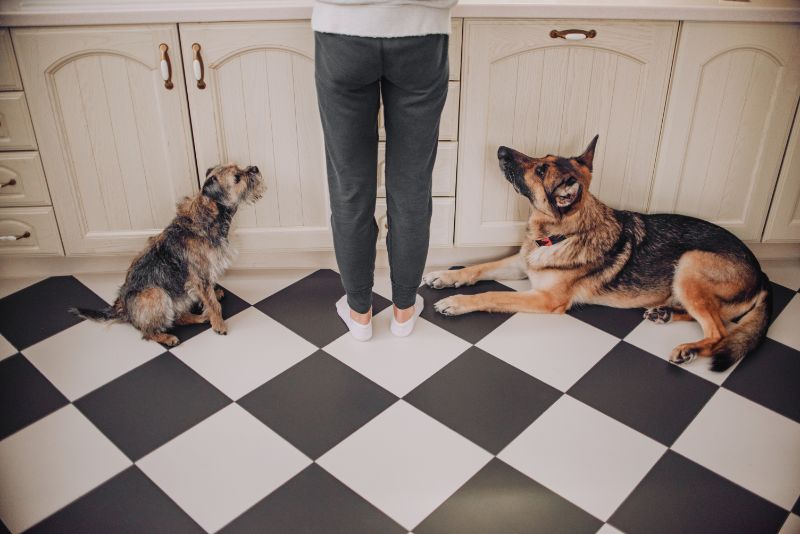Don’t Eat That! Pet Poison Prevention Tips To Keep Your Pets Healthy and Happy

It is impossible to watch your pet every second of the day, and sometimes our furry family members can get into food, plants, or household items that could be dangerous to their health.
The team at The Bluffs Pet Clinic wants to help you understand more about what is considered toxic for your animals so you can master pet poison prevention in your home and avoid an unfortunate accident.
Step 1 of Pet Poison Prevention: Avoiding Toxic Houseplants
Whether you have an entire indoor garden or a few sporadic houseplants enhancing your home decor, you should always take the time to learn about whether or not specific genus and species are dangerous for your pets.
The ASPCA has a helpful toxic plant database to make it easier to avoid flora that could poison your dog or cat, so you can always find a reference for your own collection. Some of the most common toxic plants found in homes are:
- Aloe Vera
- Ivy
- Dumb Cane
- Emerald Fern
- Sago Palm
- Bird of Paradise
- Chinese Evergreen
If you have pets that are notorious for sticking their noses into plants where they don’t belong, you might want to avoid owning these toxic houseplants.
Learn About Flowers to Avoid
Houseplants are not the only culprits when it comes to poisoning pets. Many flowers commonly found in regularly-purchased bouquets are toxic for dogs and cats. Some, like lilies, are so dangerous, in fact, that even ingesting the water from the vase could kill a cat. Here some of the most toxic flowers that could cause serious health issues for your pets:
- Lilies
- Tulips
- Daffodils
- Azaleas
- Morning Glories
If you have pets at home, avoid putting floral bouquets in locations where they can easily reach them. If you have cats that can climb all the surfaces in your home, make sure to check every bouquet for toxic flowers and opt for some non-toxic ones instead.
Just Say No to Deadly Pesticides
Many pet owners inadvertently put their animals in danger with pesticides used to get rid of pests like rodents.
As we discussed in our mouse poison blog, people often put these poisons up high to keep them away from their own pets, but pests like mice have a tendency to hoard them and move them to different locations. Once this happens, your house pets might be able to reach them without your knowledge. Instead of using poisons to get rid of these pests, try some non-toxic options like mouse traps or UV light traps. This way you can enjoy a pest-free home without putting your beloved pets in danger.
Whether you want to learn more about pet poison prevention or need to schedule your pet’s annual wellness exam, The Bluffs Pet Clinic is here for you. We focus on the whole health of your pet to ensure you can enjoy a long and happy life together. Call us today at (651) 388‑1103.

